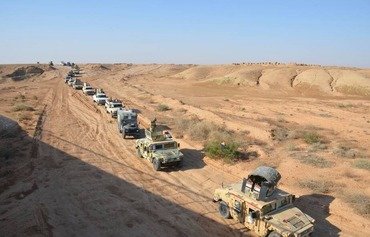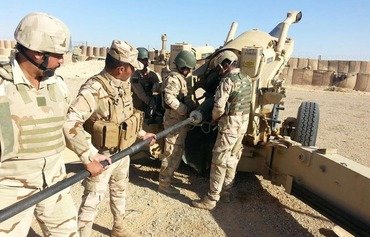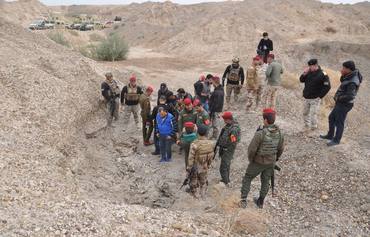The "Islamic State of Iraq and Syria" (ISIS) has been finding it increasingly difficult to use the Anbar desert as a launchpad for its attacks, an Iraqi military official said.
The group has been trying to establish a safe haven in the Anbar desert, al-Jazeera operations commander Maj. Gen. Qasim al-Mohammedi told Diyaruna on Tuesday (October 10th).
It has been attempting to find a place in the desert area near the city of al-Rutba where it can escape aerial bombardment and military operations, he said.
The group has been "trying to redeploy in the desert, taking advantage of its vast area to hide temporarily and turn it into a conduit for attacking liberated cities such as Ramadi, Heet and Kubaysa", al-Mohammedi said.
ISIS invaded Anbar in 2014 from the desert, where it gathered its gunmen, vehicles and weapons, before going on to attack the large cities.
"But now the situation is different," he said. "Despite its attempts, the group is facing great difficulties in exploiting the desert again."
"Our forces are carrying out constant activities and campaigns deep into the desert to hunt down the militants and destroy their camps and strongholds," he added. "Combing and clearing operations are yielding good results".
Nowhere for ISIS to hide
It will not be easy for ISIS to transfer its command centres and positions from the cities of Rawa and al-Qaim across the desert, al-Mohammedi said.
Any such movement is likely to be detected and targeted by Iraqi and coalition air forces, he said, noting that ISIS has fewer places left to hide.
"The group has lost about 85% of its human and weapons capabilities and is confined to a small border area in westernmost Anbar," he said, describing it as "broken and weakened".
"Our military operations have reduced the area controlled by the terrorists in this area, known as the Upper Euphrates River, which extends to the Syrian city of al-Raqa," he said.
"The enemy still has activity and movements between Iraq and Syria, but our efforts are continuing to restore the territory still under terrorist control and to limit their activity," he said.
"Soon we will liberate our cities and impose our control over the western borders of the country in full, and we will not allow the group to infiltrate or create a foothold anywhere in Anbar," he said.
Since September 19th, Iraqi forces have been engaged in a large-scale military campaign to drive ISIS from towns and cities in western Anbar.
They have so far been able to retake Anah, Akashat and al-Rayhanna.

![Iraqi army vehicles and a helicopter deploy in the Anbar desert, where the country's forces are fighting the 'Islamic State of Iraq and Syria', on March 9th, 2016. [Ahmad al-Rubaye/AFP]](/cnmi_di/images/2017/10/10/9965-Iraqi-forces-anbar-600_384.jpg)






